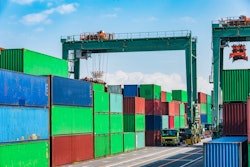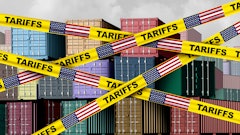
A survey conducted by Reed Smith tracks the latest areas of risk across the European and Middle East (EME) regions to determine where to focus their customs compliance efforts.
“The findings show that there are increasing levels of customs enforcement across the EME region and yet companies who are facing investigations are not sufficiently prepared,” says Philippe Heeren, Brussels-based trade partner at Reed Smith. “It’s vital that companies engaged in cross-border trade remain vigilant, invest in robust compliance programs, and closely monitor regulatory developments in order to mitigate risks and respond effectively to audits and investigations. This is especially important amid rising tariff tensions and the EU’s ongoing efforts to strengthen enforcement through its Customs Reform initiative.”
Key takeaways:
- 70% of survey respondents indicated an increased level of customs enforcement in the EME region across the last 12 months.
- Despite this, over 95% of companies facing a customs investigation demonstrate only low-to-moderate levels of preparedness.
- E-commerce, consumer goods and electronics industries were cited as the most commonly targeted by customs authorities in the EME region.
- Survey respondents rank customs valuation, tariff classification and export controls and sanctions as the key focus areas for customs enforcement in the next 12 months.
- Criminal investigations are most commonly triggered by false declarations regarding the origin or classification of goods, suspicious trade flows such as transshipment or production relocation, and the movement of controlled or high-value goods, including excise products like alcohol, tobacco, and energy products.
- The involvement of EU enforcement agencies, in particular the European Anti-Fraud Office and the European Public Prosecutor’s Office, has become increasingly prominent in EU customs-related investigations.


















